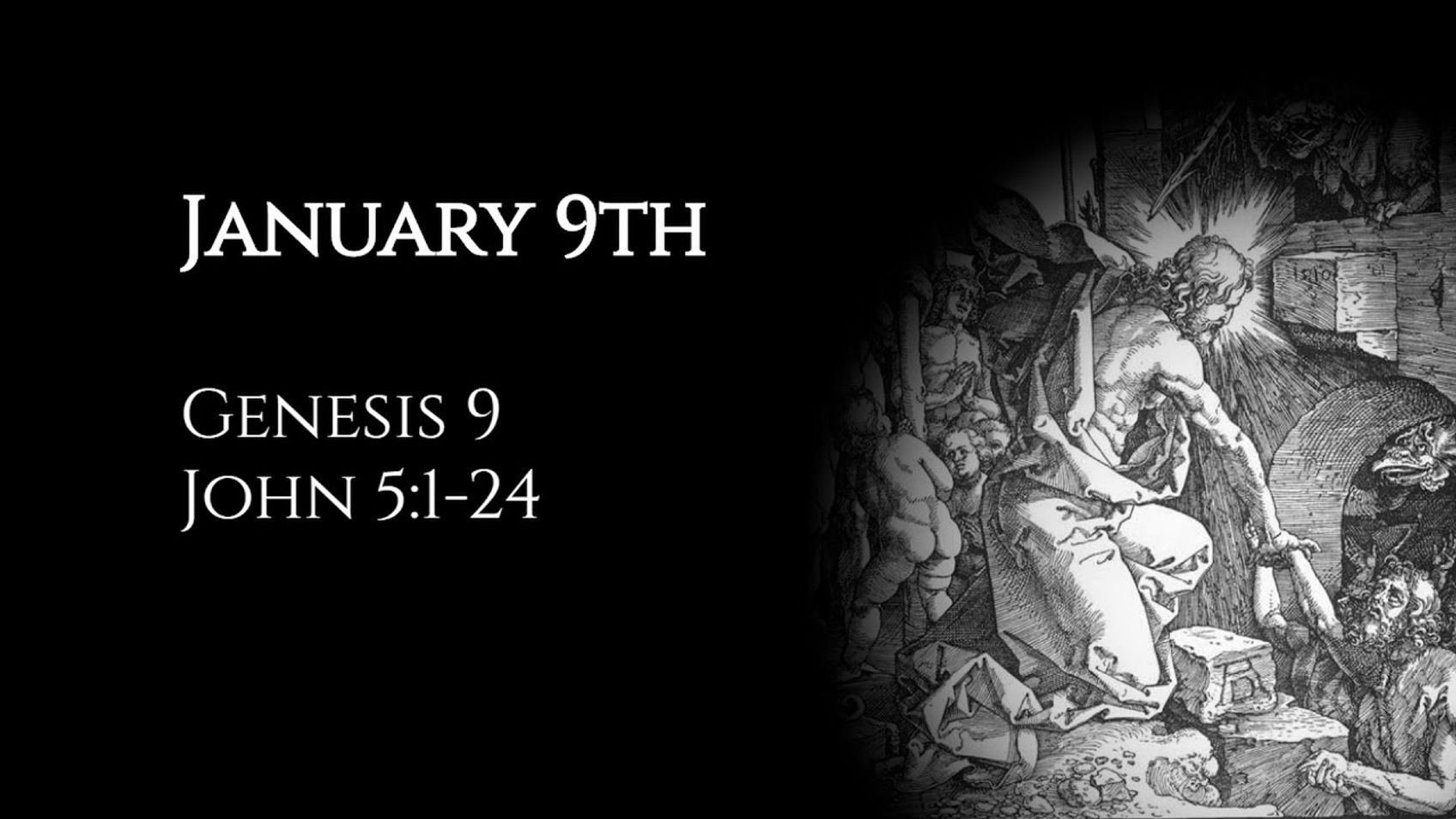January 9th: Genesis 9 & John 5:1-24
January 8, 2020

Alastair Roberts
Reflections upon the readings from the ACNA Book of Common Prayer (http://bcp2019.anglicanchurch.net/).
If you have enjoyed my output, please tell your friends. If you are interested in supporting my videos and podcasts and my research more generally, please consider supporting my work on Patreon (https://www.patreon.com/zugzwanged), using my PayPal account (https://bit.ly/2RLaUcB), or by buying books for my research on Amazon (https://www.amazon.co.uk/hz/wishlist/ls/36WVSWCK4X33O?ref_=wl_share).
The audio of all of my videos is available on my Soundcloud account: https://soundcloud.com/alastairadversaria. You can also listen to the audio of these episodes on iTunes: https://itunes.apple.com/gb/podcast/alastairs-adversaria/id1416351035?mt=2.
More From Alastair Roberts
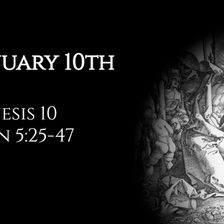
January 10th: Genesis 10 & John 5:25-47
Alastair Roberts
January 9, 2020
Reflections upon the readings from the ACNA Book of Common Prayer (http://bcp2019.anglicanchurch.net/).
If you have enjoyed my output, please tell yo
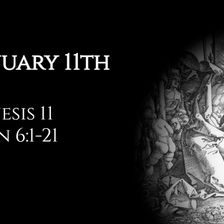
January 11th: Genesis 11 & John 6:1-21
Alastair Roberts
January 10, 2020
Reflections upon the readings from the ACNA Book of Common Prayer (http://bcp2019.anglicanchurch.net/).
If you have enjoyed my output, please tell yo

January 12th: Genesis 12 & John 6:22-40
Alastair Roberts
January 12, 2020
Abram's call and his time in Egypt; Jesus and the manna.
Reflections upon the readings from the ACNA Book of Common Prayer (http://bcp2019.anglicanch
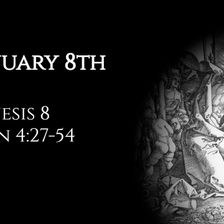
January 8th: Genesis 8 & John 4:27-54
Alastair Roberts
January 7, 2020
Reflections upon the readings from the ACNA Book of Common Prayer (http://bcp2019.anglicanchurch.net/).
If you have enjoyed my output, please tell yo
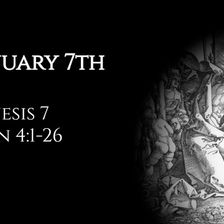
January 7th: Genesis 7 & John 4:1-26
Alastair Roberts
January 6, 2020
Reflections upon the readings from the ACNA Book of Common Prayer (http://bcp2019.anglicanchurch.net/).
If you have enjoyed my output, please tell yo
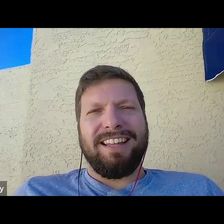
Steven Duby and Joseph Minich on Divine Simplicity—'The Lord Is One: Reclaiming Divine Simplicity'
Alastair Roberts
January 6, 2020
Steven Duby and Joseph Minich recently joined me to discuss 'The Lord Is One: Reclaiming Divine Simplicity', a book to which they both contribute essa
More on OpenTheo

E. Calvin Beisner: Climate and Energy Policy
Knight & Rose Show
January 4, 2026
Wintery Knight and Desert Rose welcome Dr. E. Calvin Beisner to discuss climate and energy policy. They explore Biblical dominion and stewardship, con

How Can I Explain Modesty to My Daughter?
#STRask
November 27, 2025
Questions about how to explain modesty to a nine-year-old in a way that won’t cause shame about her body, and when and how to tell a child about a pre

Christmas Cranks and Christmas Blessings with Justin Taylor and Collin Hansen
Life and Books and Everything
December 17, 2025
If you are looking for a podcast where three friends talk about whatever they want to talk about and ramble on about sports, books, and grievances, th

Does God Really Need a “Pound of Flesh” to Forgive Sins?
#STRask
January 12, 2026
Questions about how to answer the challenge that God doesn’t need a “pound of flesh” to forgive sins but can simply forgive, and whether the claim in

The Heidelberg Catechism with R. Scott Clark
Life and Books and Everything
November 3, 2025
You may not think you need 1,000 pages on the Heidelberg Catechism, but you do! R. Scott Clark, professor at Westminster Seminary California, has writ

Kingdom Priorities: Following the Teachings of Jesus
Knight & Rose Show
February 14, 2026
Wintery Knight and Desert Rose discuss Jesus' teachings from the Gospels, emphasizing truth, evidence, self-denial, and forgiveness. They explore pass

Can You Recommend Good Books with More In-Depth Information and Ideas?
#STRask
January 22, 2026
Questions about good books on Christian apologetics, philosophy, and theology with more in-depth information and ideas, and resources to help an intel

Prove to Me That Jesus Is Not a Created Being
#STRask
January 26, 2026
Questions about why we should think Jesus is not a created being, and what it means to say God became fully human if part of being human means not bei

Did God Create Us So He Wouldn’t Be Alone?
#STRask
November 3, 2025
Questions about whether God created us so he wouldn’t be alone, what he had before us, and a comparison between the Muslim view of God and the Christi

What About Those Who Never Heard the Name of Jesus?
#STRask
December 22, 2025
Questions about what will happen to those who never heard of Jesus or were brought up in a different faith, whether there’s biblical warrant to think

Are Demon Possessions and Exorcisms in the New Testament Literal?
#STRask
December 11, 2025
Questions about whether references to demon possessions and exorcisms in the New Testament are literal, how to talk to young children about ghosts, an

Protestants and Catholics: What’s the Difference? With Chad Van Dixhoorn, Blair Smith, and Mark McDowell
Life and Books and Everything
November 26, 2025
How should Protestants think about the Catholic Mass? About the Eucharist? About the history and development of the papacy? In this panel discussion,

How Can We Know Who Is Teaching the Same Gospel Paul Taught?
#STRask
February 16, 2026
Questions about how we can know who is teaching the same gospel Paul taught, and whether or not Jeremiah 1:5 supports the idea that we pre-existed in

Why Do We Say Someone Was Saved on a Particular Date If It Was Part of an Eternal Plan?
#STRask
November 24, 2025
Questions about why we say someone was saved on a particular date if it was part of an eternal plan, the Roman Catholic view of the gospel vs. the Bib

What Is Wrong with Wokeness? With Neil Shenvi
Life and Books and Everything
January 19, 2026
In this timely interview, Kevin talks to Neil Shenvi about his new book (co-authored with Pat Sawyer), entitled “Post Woke: Asserting a Biblical Visio
